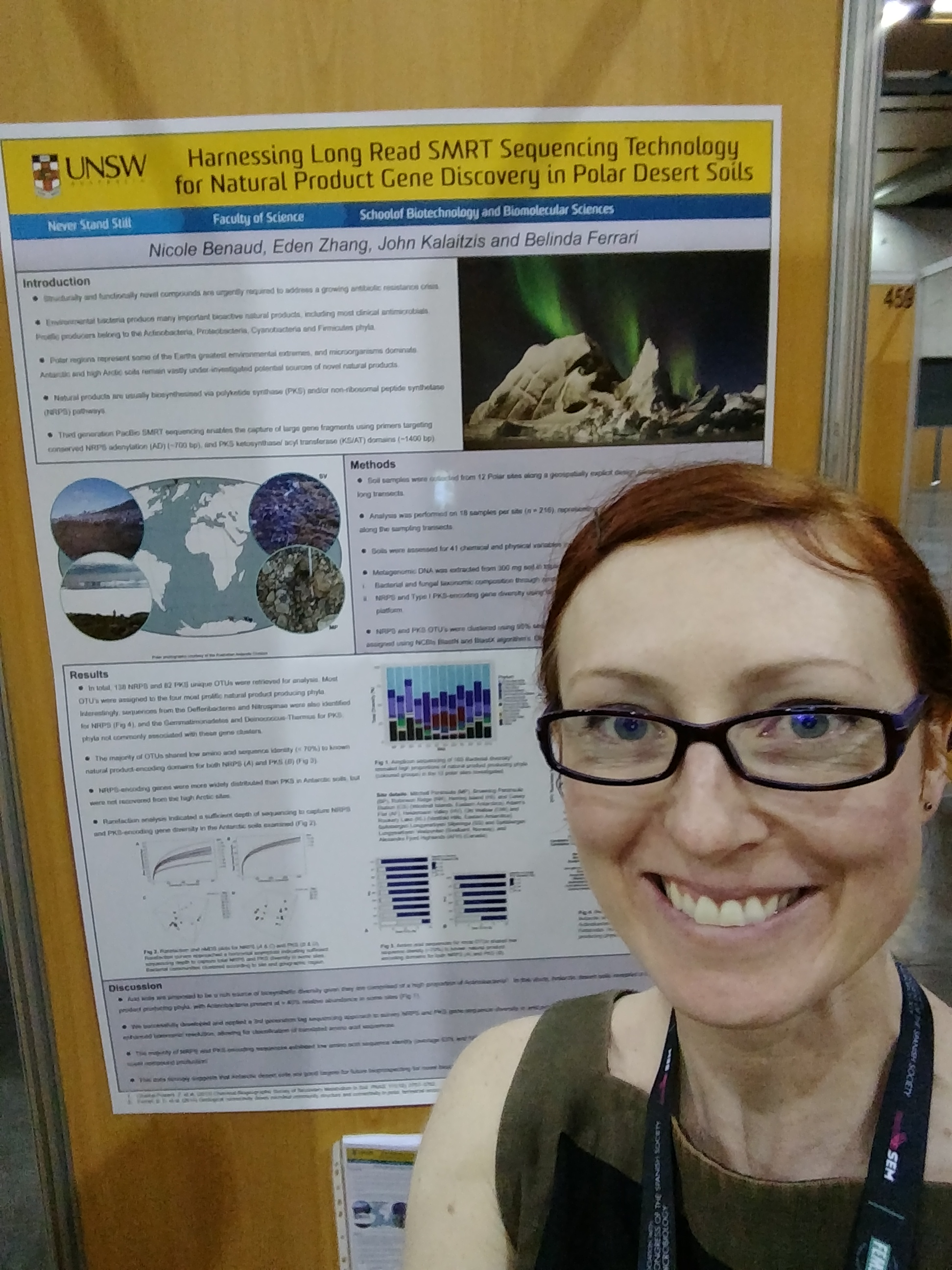Local and international speakers include:
- Mike Manefield, University of New South Wales, Australia
- Chris Greening, Monash University, Australia
- Dianne Newman, Caltech, USA
- Caroline Chenard, NTU, Singapore
- Rytas Vilgalys, Duke University, USA
http://www.jams.org.au/node/568
Continuing on from Honours, our new PhD Student, Angelique Ray, will be giving a poster presentation at the event.







